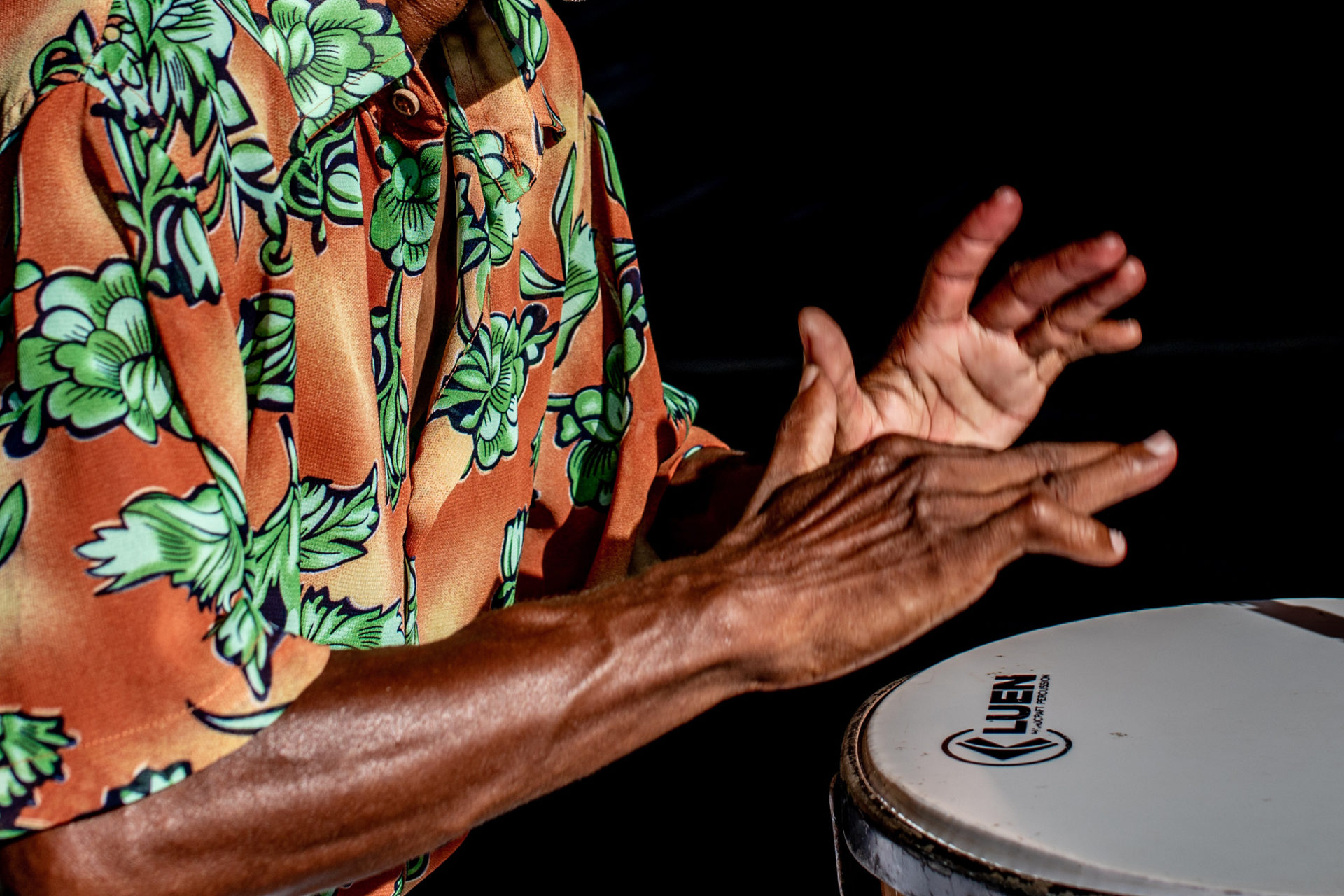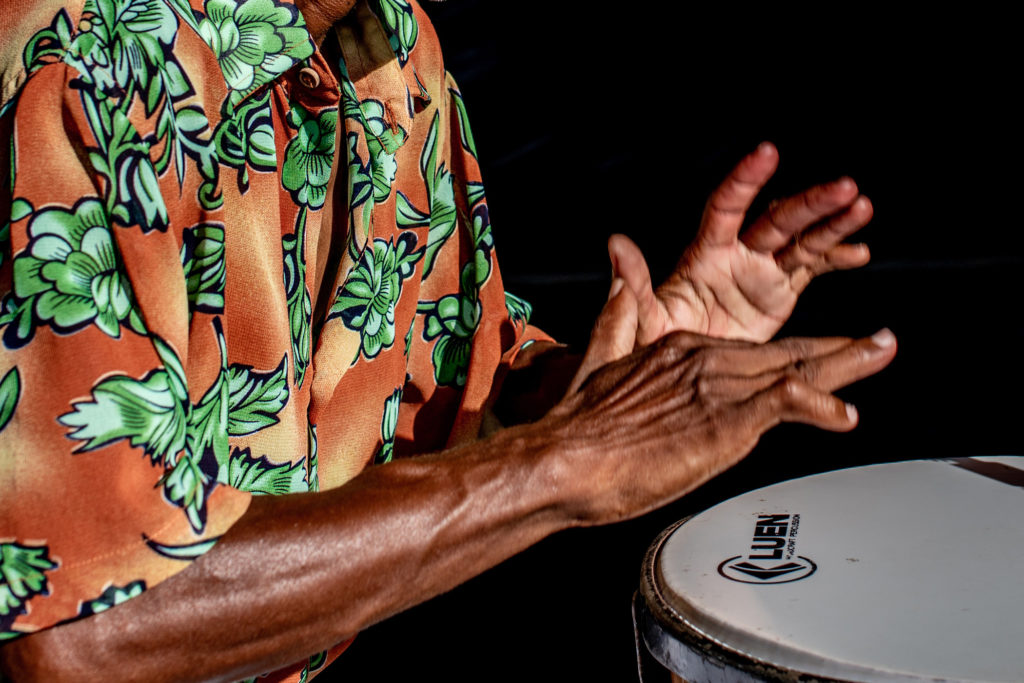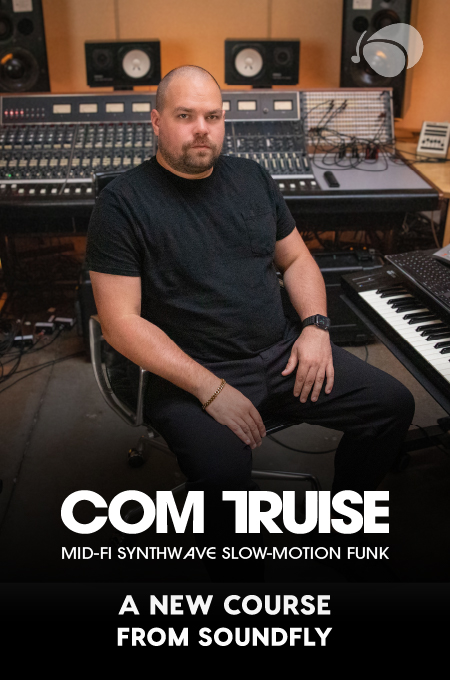
+ Learning to record and mix music at home? Soundfly’s online courses on mixing, producing, and beat making can help! Preview them for free and subscribe for access.
By Cayla Brooke & Bree Noble
Our health is much like the song “Big Yellow Taxi.” “We don’t know what we have ’til it’s gone.” In an instant, a diagnosis or accident can change your life forever. Symptoms become chronic. Everyday tasks are now daunting, and we look at our old life with longing.
So, where do you turn when you’re in pain 24/7? How do you move forward when your illness seems front and center?
Through the murky waters, our music dreams resurface. Our soul beckons us to reach for them. But how can we? Is it even possible to become a profitable musician now?
The short answer? It isn’t easy. But it is possible. And it will take all of you — your mind, body, and spirit.
Mind
“Everything is created twice. First mentally; then physically.” — Stephen Covey
We know life isn’t easy. But even though we know it, it doesn’t stop us from asking “why me” when something new blinds us. “Why does it have to be so hard?”
Dealing with chronic illness is like that. You hear your friends and colleagues complaining about the music business. Again. You think, “You have no idea how difficult it is. I wish I could have it easy like you.” And then it starts. The spiral:
“Why me? What did I do to deserve this? What’s the point? It’s never going to happen for me. How can it? I have this thing to deal with on top of everything else. It’s too hard. I give up.”
We can choose to go that route or have faith. We may not have chosen our present circumstances, but we can choose how we respond to them.
Django Reinhardt could have given up playing guitar after he suffered extensive burns to half of his body in a fire, which resulted in an 18-month hospital stay. He never regained use of his ring and baby fingers on his right hand. Reinhardt was 18 years old when his trailer caught fire. Already a full-time musician, his guitar-playing days could have been over. Instead, he relearned to play the guitar using his index and middle finger for all notes and chords. And then mastered it.
Mastery of the guitar is hard enough with all five fingers. Django used two.
No one would have blamed Django had he chosen to give up. Who plays the guitar with two fingers? He could have become an accountant and lived his life pushing paper on a desk. But he didn’t. He chose to pursue his music career.
If we deconstruct Django’s story, we find the three steps he took to champion his situation. We can use this same framework to help us work through our own adversities.
1. Acceptance
Django’s first step was acceptance. He did something simple yet challenging for most of us to do. He took away the narrative and accepted what is. He had two fingers that didn’t work. All the other stuff — my life is ruined, I’ll never play the guitar again, I’m useless — he took them out of the equation. He stuck to the facts. He had three working fingers on his right hand.
Action Step: Look at your situation and remove the narrative. State in simple terms what your issue is without embellishment.
2. Reframing
After accepting what had happened, Django reframed the dialogue. He got curious. “What if I could play the guitar with two fingers? What would that look like?”
Jonathan Fields has Tinnitus. Jonathan is an award-winning author and host of the “Good Life Project” podcast.
When diagnosed with Tinnitus, he did everything he could to fix it. And after exhausting every avenue, Jonathan finally had to accept his condition. He had to admit that the constant buzzing inside his head would never disappear. Ever. His life was over as he knew it. And the pulsing sound was driving him mad.
He was at a crossroads. His condition could stop him from his dreams, or he could relearn how to enjoy his life. Thankfully, he reframed his thoughts:
“I’m a New Yorker. I tune out sirens, yelling and honking cars every day. What if I could tune out the buzzing in my head.”
It turns out he could. He saw the end game of what he wanted for his life. He saw himself enjoying life while still having a buzzing sound inside his head — a tall order. What would it look like if you could see the end game of what you want for your music career? Still aware and accepting of your ailment(s).
That simple reframe could change how you show up in the world. What would you do today if you could imagine your end game as a working, profitable musician?
Action Step: What is the story you’re telling yourself about your illness or pain? Are you telling yourself that you’ll never succeed? What would happen if you changed the story and re-wrote the script?
Imagine the end game of what you want for your life and career. Do this with the full acceptance of your struggle right now. Who is that person? How do they function on a day-to-day basis? And then ask yourself, “How can I show up today as that person?”
3. Action
“Something can drop in your life as a source of great suffering and over time become a source of great teaching.” — Jonathan Fields
Django Reinhardt and Jonathan Field’s stories are similar. They both accepted what was going on. They both became curious about “what would it look like if?” They both took action.
No one is saying it’s going to be easy. No one would blame you if you quit. But if your soul cries out to be a working musician, ask yourself, “what if ….” and start to take action.
Action Step: How can you look at your situation with curiosity? How would you finish this sentence? “What if I could ___?” What actions could you begin taking to lead you on your way?
Body
“Know your limit. Play within it.” — Lotto Slogan
When dealing with health issues, taking care of our basic needs is paramount. They are the building blocks of our quality of life. It may be common sense, but it doesn’t make it common practice. So if you’re looking for an excellent place to start to act, this is it. Brendon Burchard calls it “taking your MEDS” — Meditation, Exercise, Diet, and Sleep.
1. Meditation
Meditation is more than sitting still and breathing. Meditation can help with pain management and even illness. When you meditate for relief, you’re not ignoring your pain or illness. You focus on it. Lean into it. By working with the pain, you begin to reduce it.
The accumulative benefits include reduced stress and lower blood pressure, which positively affect your mental health. So it’s no wonder more practitioners are recommending meditation to their patients.
There are plenty of meditation apps to get you on your way (both free and paid). If you’re interested in an app to help deal with pain management, you can try Pathways Pain Relief or Curable App.
+ Read more on Flypaper: “Listening and Liberation: The World Is Sound.”
2. Exercise
How do you exercise when you’re in pain or ill? That’s where a discussion with your doctor is in order. That said, exercise is integral to your health. You may not run a marathon, but you might walk the block. You could try yoga, strength training, or swimming.
Action Step: There is an exercise that will work with your situation. Your goal is to find a program that may work for you and start. Join a gym. Find a personal trainer. Make a date with a friend to go for walks regularly.
3. Diet
So many foods in the Standard American Diet cause inflammation. How many inflammatory foods are you consuming daily? Do you know if you’re allergic to any foods? Our diet affects our energy levels, sleep, and overall health. And if you have an autoimmune disease like RA, Lupus or Crohn’s — adjustments to your diet are crucial. If you want to give your body a fighting chance, you need to fuel your body with fighting ingredients.
Action Step: An appointment with a qualified nutritionist can help. Find out which foods help your condition. Then, start incorporating them into your diet regularly.
4. Sleep
A lack of sleep doesn’t just make you tired and crave the stale donut in the cupboard. Sleep deprivation puts you at risk for a host of diseases — Diabetes, high blood pressure and heart disease, to name a few. Lack of sleep weakens your immune system and leads to weight gain.
It can also put you at a greater risk of developing high cholesterol, triggering a heart attack or a stroke. It makes you want to take a nap, doesn’t it?
Sleep is vital for everyone. Getting enough rest becomes imperative when you have health issues. But sleep doesn’t come easily for everyone. There is hope. Over time, you can train your body to rest and repair. And by using meditation, exercise, and diet as the 1-2-3 combo, a good night’s rest may be around the corner for you.
There are many beautiful ways to help you drift off into dreamland — like light stretching, meditation, journaling, taking a bath — but, if none seem appealing, there are apps with calming music or bedtime stories to help you fall asleep. Even Michael Buble swears by it. He listens to the Calm app every night.
Action Step: Look over the MEDS parts of your life. Are you lacking in any of these areas? What can you start today to improve on one of the sections? Then, make an improvement plan. It’s surprising how much your quality of life improves when you tweak the basics.
5. Shift and Pivot
“When you honor your limits — rather than act like they don’t exist — you decrease the stress that is sure to creep in when your goals start to test your reality.” — Danielle LaPorte
Sometimes we need to shift or adjust our approach to make progress. It may not be in the leaps and bounds that we once imagined. But we are still moving forward, and moving forward equals progress. It’s the whole “Tortoise and the Hare” thing. It’s about amplifying your strengths and acknowledging your weakness.
There isn’t a simple button. We need to mentally prepare for the struggle and honour it when it happens. It also helps to have a plan.
6. Your Schedule
What about adjusting your schedule based on how you typically feel during the week? Do you only have a few hours of energy each day? You could choose to work on your music seven days a week for a few hours. This way, you spread the work over the week.
That’s not to say you become a workaholic and work seven days a week, 8 hours a day. It could mean working three hours a day for 21 in a week. You could ensure you schedule your MEDS into your day to operate at your best: schedule naps, self-care and daily walks.
If you can afford it, you could hire a VA to help you with some of the tedious work. Or a meal delivery service to take the pressure of meal prep away.
When it comes to touring, it’s essential to plan your tour so you stay healthy. Figure out what you need and what you don’t need. And then work that into your schedule.
- You could build in rest days.
- Travel with a cooler full of nutritious food.
- Bring your pillow to help with sleeping in different beds.
- Bring a friend/helper to assist with schlepping gear and merch.
- Pack exercise bands for quick workouts in the hotel or on the road.
- Map out the parks along the way for planned rests and nature walks.
- Add conditions to your contracts and riders, like food and hotel preferences and travel time limits.
If going on tour or live performance seems too daunting, why not find other avenues to make money as a musician. There are so many ways now to work from home, on your own time. Remember, taking a rest is not losing the battle; it’s taking a rest. Likewise, shifting and pivoting aren’t giving up; it’s choosing another direction.
Action Step: Look at your current schedule. How can you tweak it to work with you instead of against you? Are there ways to earn money as a musician that you can do from home on your own time? Do some brainstorming.
Spirit
1. Spirit of Purpose
Why are you a musician? Were you born to be a musician? Can you imagine doing anything else? Yeah, me neither. Don’t let go of that. It’s your legacy.
2. Spirit of Service
We know music can have a significant impact on audiences. But do you realize your health story could also change lives?
Someone out there is waiting to hear your story, and hearing it may become a pivotal moment in their life. You could be a role model to others in the same position as you. Imagine if someone listened to your story and thought to themselves, “If they can do it, so can I.”
3. Spirit of Persistence
“Ambition is the path to success. Persistence is the vehicle you arrive in.” — Bill Bradley
There will be days when it won’t be easy. So what will you say to yourself in the heart of the struggle? It’s good to have a go-to phrase on those tough days. Or somewhere to turn for encouragement. You could tell yourself, “You can quit, but quit on a good day.”
You could have a file folder full of fan comments about your music. Keep copies of emails sent to you about how your music has touched them. When you’re feeling low and want to give up, a kind word may be all you need to boost your spirit of persistence.
Action Step: Write down your why. Start an ego file on your computer or phone. Write down what you’re going to tell yourself when you’re having a bad day.
Music is like healing waters to those who listen, and you are lucky enough to make music. So, in continuing your path, I hope you may find your own version of healing. And, in doing that, write your new story.
Want even more?
Continue learning with hundreds of lessons on songwriting, mixing, DIY home recording and production, composing, beat making, and so much more, with Soundfly’s artist-led courses, like: RJD2: From Samples to Songs, Kimbra: Vocal Creativity, Arranging, & Production, and Kiefer: Keys, Chords, & Beats.
—
Cayla Brooke is a keynote concert speaker, singer, songwriter and playwright from Vancouver, BC, Canada. She is currently writing her first book titled “Reclaim your Throne” and working on her second album “Feed My Soul”
Bree Noble quit her corporate job as a Director of Finance to pursue music. After a successful run as a touring singer/songwriter, she founded Women of Substance Radio to promote quality female artists in all genres. She hosts the Profitable Musician Podcast where she teaches musicians how to make money by drawing on her extensive experience as a musician, online marketer and business owner.




